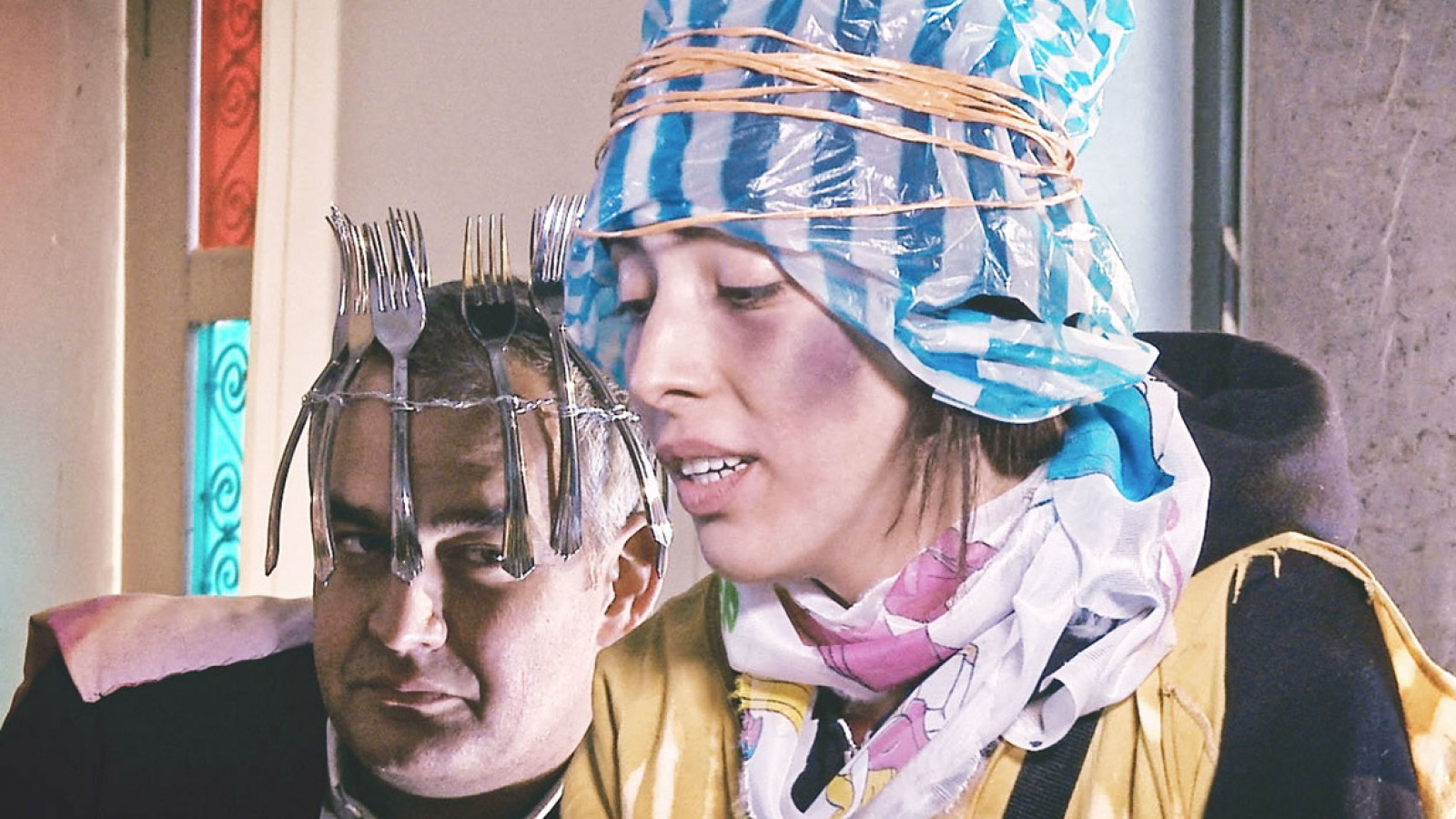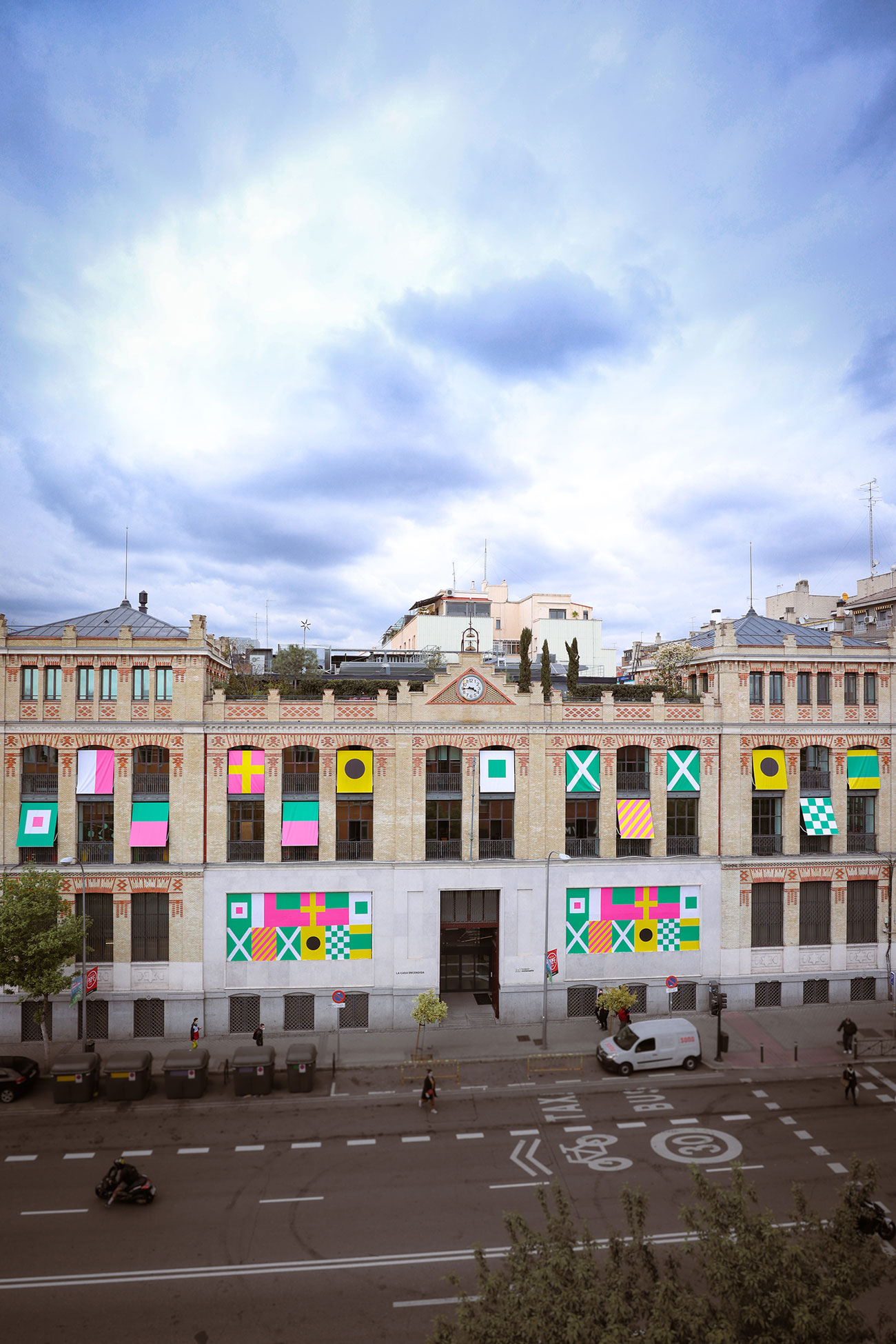“Rosarium” by Sarah Abu Abdallah + “Restored Communication” by Neïl Beloufa
Within the programming of
The Sound of Screens Imploding| Duration: | 1 hour 30 minutes |
Two films that depict Arab society from two very different vantage points: a reality-show parody set in Iran, and a wealthy woman’s resistance to the everyday in her Saudi Arabian home.
-
Rosarium, directed by Sarah Abu Abdallah. Saudi Arabia/Switzerland, 2018. 10’
Sarah Abu Abdallah worked in collaboration with Saudi filmmaker Reem al-Bayyat on Rosarium, which tackles crying and shedding tears in both the romantic and ritualistic sense. The star of the film is actress Rana Alamuddin, who we follow around her house as she attempts to resist the everyday through the act of crying. What initially looks like a perfect home turns out to be a hallucination that unravels as the film progresses.
Sarah Abu Abdallah (Qatif, Saudi Arabia, 1990) works across a variety of media, including video, installation, poetry and images. Her work creates speculative spaces and assembles narratives coloured by the absurdity and awkwardness found in the mundane.
-
Restored Communication, directed by Neïl Beloufa. Iran/France/Switzerland, 2018. 77’
Reality TV—a political form in which a group of isolated people disagree and compete—is one of the dominant clichés of Western representation. Shot in Iran, where reality shows are not yet widespread, Restored Communication stages candidates cut off from the world who re-enact different seizures of power in various political contexts. In this system, as artificial as it is liberal, the competitors are locked up, filmed without interruption and subjected to the injunctions of a voice-over. Deprived of food, a voice and contact with the outside world, they seem helpless, reflecting the stereotypical image of Iran’s geopolitical isolation. A mixture of school-boyish fiction and documentary, the piece slowly turns into a scathing genre film in which even a water pistol can kill.
The films, sculptures, and installations of Neïl Beloufa (Paris, 1985) reflect his opposition to all forms of hierarchy and mix genres without concession. He skilfully reconciles the disenchantment of his generation with the hope instilled by alternative systems.

